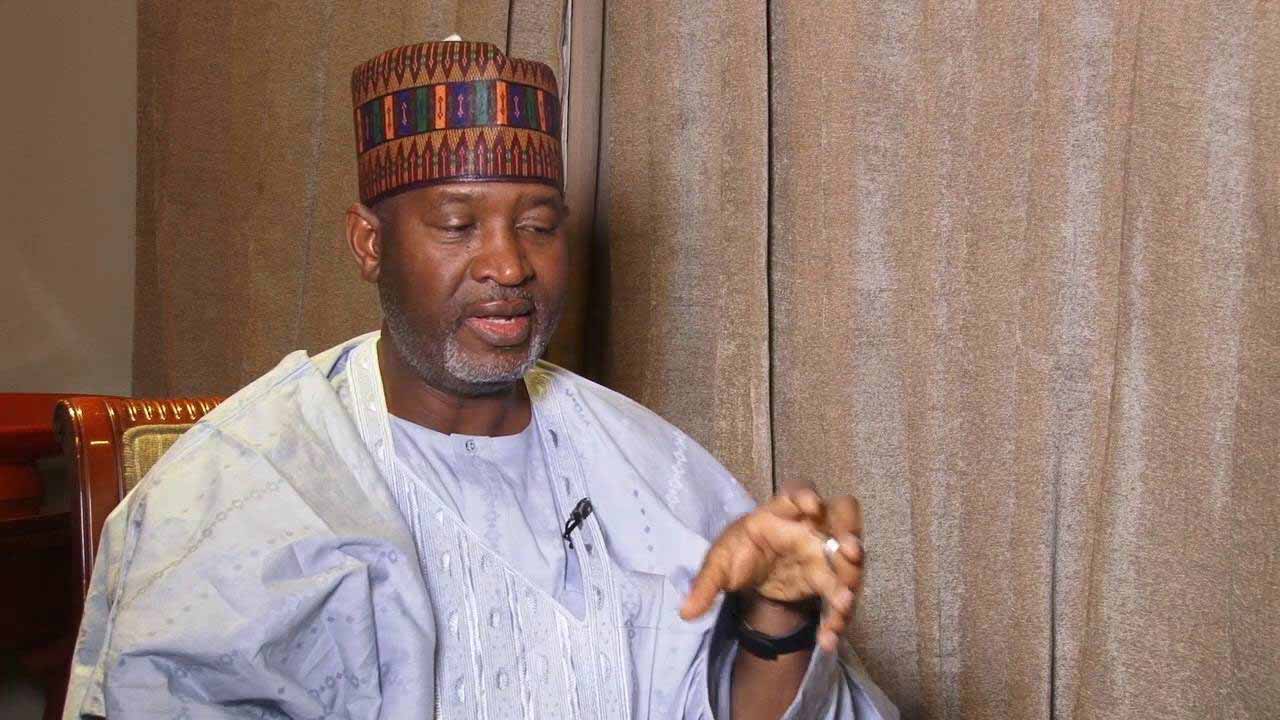- National Carrier Needs $300m Initial Capital — FG
The new national airline, Nigeria Air, will require initial capital of between $150m and $300m, and the Federal Government is seeking a strategic partner to operate the carrier, according to a document seen by Reuters on Thursday.
The Minister of State for Aviation, Hadi Sirika, on Wednesday said the government would not own more than five per cent of the new carrier.
He made the comments while providing details of the airline at the Farnborough air show in London, England.
The government plans to launch the airline in December, making good President Muhammadu Buhari’s election campaign promise.
Decades of neglect and lack of investment have left Nigeria with low-quality infrastructure seen as a hurdle to prosperity. The government has said that upgrading it will require private investment.
“The initial capital is likely to be in the range of $150m to $300m, invested in tranches over time from start up through the first years of operation,” the government document stated.
It noted that the government would provide the initial capital but did not state the sum or give further details.
The government will “facilitate the process for opening up the capital of the airline to private sector financial investors,” the document added.
A private operator, sought through a Public Private Partnership process, would manage the airline without interference, it stated.
Nigeria Air will serve domestic and international markets, and is expected to have a fleet of 30 aircraft in five years with hubs in Lagos and Abuja.
British billionaire, Richard Branson, set up domestic and international carrier, Virgin Nigeria in 2000, but pulled out in 2010 in frustration at what he said was interference by politicians and regulators.
The airline he created, which was later rebranded as Air Nigeria, closed in 2012 after collapsing under about N35bn of debt, which left it unable to pay workers, a former finance director of the company told Reuters at the time.
Nigeria is overhauling its aviation infrastructure and handing over its airports to private managers in order to improve the business environment for the industry to attract investment, according to the document.
It noted that current air traffic in the country was around 15 million passengers, which is expected to grow at five per cent per annum through to 2036.
The government said a majority stake could be available to an overseas backer as it seeks know-how and cash to help the start-up avoid the fate of former flag carriers.
The country has no cap on overseas ownership of its airlines and will be prepared to offer more than 50 per cent of Nigeria Air to a strategic ally, Tilmann Gabriel, who is helping to coordinate the project, said in an interview with Bloomberg on Wednesday at the Farnborough air show.
Sirika held talks at the expo with the chiefs of Ethiopian Airlines Enterprise, Africa’s biggest carrier, and Qatar Airways, which holds a stake in British Airways owner, IAG SA.
Other operators are also interested, according to the executive, who said the new airline would have a fleet of 30 aircraft and operate 80 routes, half of them international, within four years.
In unveiling the plan for Nigeria Air, which will have a tail design featuring an eagle-like swirl in green and white, Sirika said that having once been dominant in African aviation, Nigeria had a “huge need and desire” for a national airline.
The new operator plans to begin flying in December with a fleet of 15 leased aircraft, and has started talks with Airbus SE and Boeing Co on buying new aircraft. The requirement includes short-haul planes for local and domestic flights plus wide-bodies for flights to long-haul locations such as London and New York. Inter-continental services should begin in the middle of next year.
Ethiopian Air’s Chief Executive Officer, Tewolde GebreMariam, said in an interview with Bloomberg on Tuesday that his company was interested in the Nigerian project.
Ethiopian Air, Africa’s only consistently profitable carrier, serves about 70 global cities and 60 across Africa from its hub in Addis Ababa. It already owns stakes in carriers in Malawi and Togo, and is seeking to establish holdings in Zambia, Chad, Mozambique, Guinea and Eritrea, while helping to manage existing operators in Equatorial Guinea and the Democratic Republic of Congo.



 Naira4 weeks ago
Naira4 weeks ago


 Naira3 weeks ago
Naira3 weeks ago


 News4 weeks ago
News4 weeks ago
 Travel4 weeks ago
Travel4 weeks ago




 Naira4 weeks ago
Naira4 weeks ago


 Jobs3 weeks ago
Jobs3 weeks ago
 Naira3 weeks ago
Naira3 weeks ago


 Travel3 weeks ago
Travel3 weeks ago




















